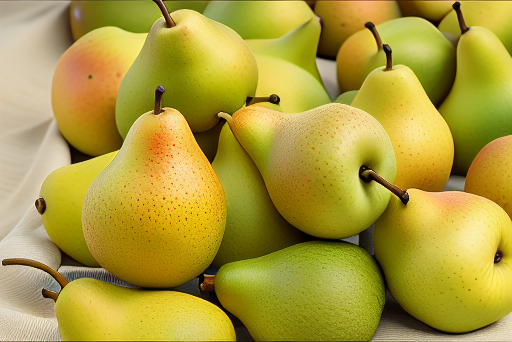Living with Diabetes can be challenging. Managing your diet, exercising regularly, and monitoring blood sugar levels is a full-time job. Whether you’re diabetic or not, including fruits in your daily diet is essential for a healthy lifestyle. However, not all fruits are diabetes-friendly.
Curious about the best and worst fruits for diabetes? Are peaches and apples good? Should you say goodbye to bananas and pineapples? Let’s dive into the ultimate guide on fruits for diabetics.

Best Fruits for Diabetes
1. Blueberries
Blueberries are a diabetic superfood. They help neutralize harmful free radicals and improve insulin sensitivity, making them a perfect choice for long-term diabetics. A bowl of purple salad with blueberries, purple cabbage, and feta cheese is not just delicious but beneficial too.
Blueberries, along with other berries like strawberries, have a low glycemic index (GI) of 53, making them an excellent addition to parfaits and yogurts. How do you enjoy blueberries—in a salad or as a smoothie?
2. Peaches
Peaches are summer’s sweet, juicy delights and are incredibly diabetes-friendly. Enjoy them in smoothies or as a refreshing salad to benefit from their antioxidants and vitamin C, which promote healthy skin and hair.
3. Apricots
With their sweet flavor and nutrient richness, apricots are a powerhouse for diabetics. Loaded with vitamin A, C, potassium, copper, and manganese, they help maintain blood sugar levels. Dried or fresh, apricots are a wholesome snack option. Pair thin slices with peanut butter on toast for a healthy, filling meal.
4. Apples
An apple a day might keep the doctor away, even for diabetics. Apples contain fiber that slows glucose release into the bloodstream, balancing their natural sugar content. A medium apple has about 25 grams of carbs and 4 grams of fiber—perfect for stable blood sugar levels.
5. Oranges
Citrus fruits like oranges are more than a vitamin C boost. They contain folate, potassium, and fiber, reducing inflammation, protecting the heart, and helping control blood sugar. Choose whole oranges over juice for maximum benefits and slower glucose release.
6. Kiwi
Kiwi is a low-GI fruit (GI 53) rich in antioxidants and essential nutrients that support immunity and heart health. Its vibrant green flesh adds a delightful touch to any diabetic meal plan.
7. Pears

Their low GI ensures they don’t cause sudden glucose spikes. For maximum benefits, eat them with the skin on.
8. Cherries
Cherries are low-calorie, antioxidant-rich fruits with anti-inflammatory properties. With a low GI, cherries are a small but powerful addition to a diabetic-friendly diet.
9. Strawberries
These berries are rich in antioxidants and fiber and have detoxifying properties, making them ideal for managing blood sugar levels and sweet cravings.
Fruits to Avoid with Diabetes
1. Pineapple
Pineapples are nutrient-dense but have a high GI, which can cause rapid sugar spikes. If you love pineapple, pair it with low-carb foods to balance its impact.
2. Mango
Mangoes, often called the “king of fruits,” are delicious but high in sugar and carbs. If you can’t resist, opt for firmer mangoes and eat them in moderation.
3. Watermelon
Although hydrating and rich in vitamins, watermelon’s high GI of 72 makes it less suitable for diabetics. Eat it sparingly to avoid sugar surges.
4. Banana
They’re best avoided by diabetics.
5. Grapes
Grapes are full of vital nutrients but are high in sugar, with a cup containing around 23 grams. Eating them in excess can disrupt blood sugar control.
6. Raisins
While raisins are considered a healthy snack, their high sugar content and concentrated carbs make them unsuitable for uncontrolled diabetes. Stick to small portions or avoid them altogether.
7. Lychees
Lychees are fiber-rich and full of vitamins, but their sugar content can cause harm, especially for those with gestational diabetes. A single piece contains a significant amount of sugar.
8. Dates
Dates are a popular sugar substitute, but they are highly caloric and concentrated with sugar. A quarter cup of dates contains around 100 calories—best avoided if your diabetes isn’t well-managed.
Takeaway
Eating fruits as a diabetic requires mindful choices. Low-GI fruits like berries, apples, and oranges are excellent options, while high-sugar fruits like pineapples, mangoes, and dates should be consumed in moderation or avoided. Which fruits are staples in your diet? Share your tips in the comments!
